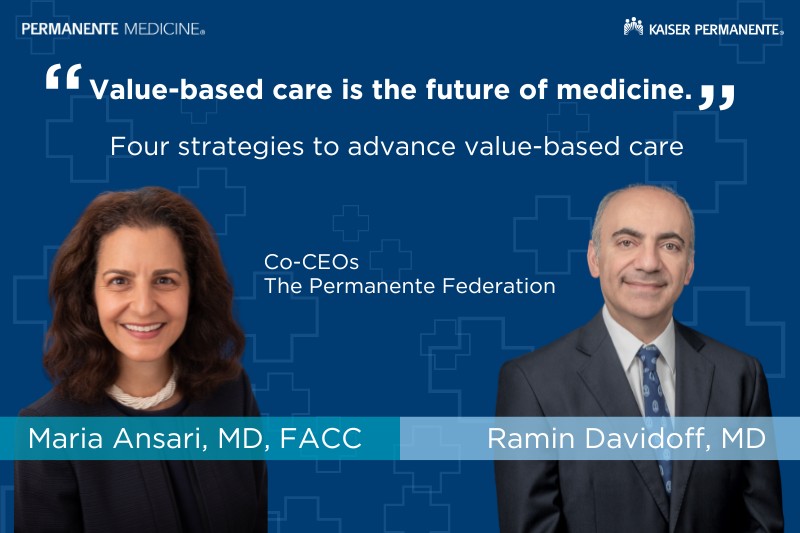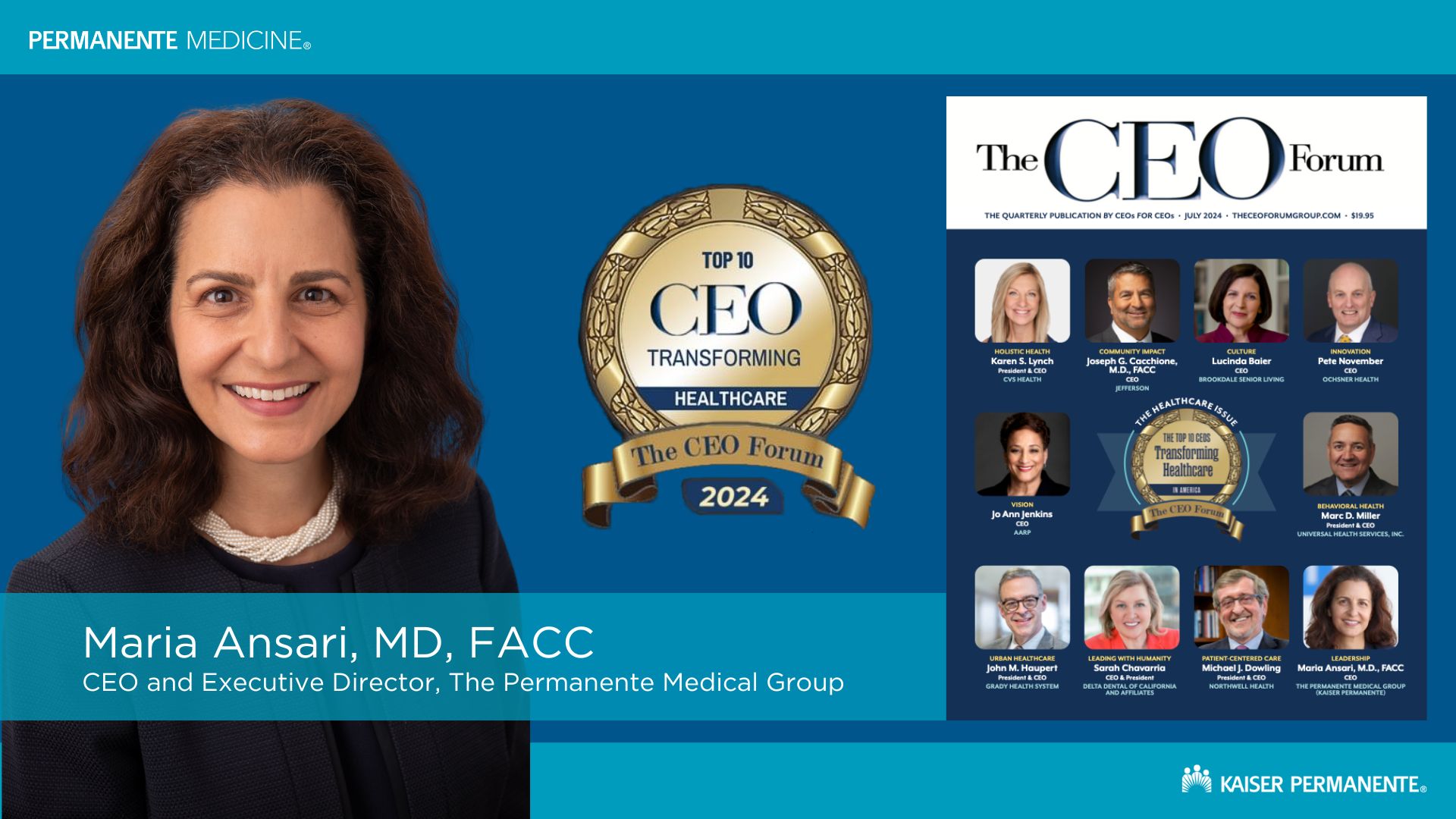In The Permanente Journal, an expert panel discussed how artificial intelligence can supercharge innovation within health care.
Stephen Parodi, MD: It’s time to return to activities as COVID hospitalizations decline
The U.S. government’s recent lifting of the public health emergency has prompted people who closely followed COVID-19 safety protocols during the past 3 years to resume travel, attend in-person events, and socialize without masks, reports The Washington Post. Health care experts, including Stephen Parodi, MD, associate executive director of The Permanente Medical Group, were quoted on a shift in societal attitudes as COVID shifts from pandemic to endemic.
While it’s important to remain vigilant — especially for the immunocompromised — Dr. Parodi advises people to get back to their daily lives. That means reconnecting with friends, families, and activities that bring joy. He added that the toll of stress on our bodies brought on by loneliness can cause physical health effects, and that he had seen such cases in his own practice.
“Social isolation is not good for us, and it’s really important that we get back to some of our activities,” said Dr. Parodi, an infectious disease physician who managed the COVID response for Kaiser Permanente in Northern California.
Dr. Parodi said that in Kaiser Permanente’s Northern California hospitals, patients with COVID have declined from filling 10 to 15% of beds last summer to 5% today. He said those statistics generally hold true for Kaiser Permanente hospitals across the U.S.
Related story: “Permanente infectious disease specialists power COVID-19 response”
As The Washington Post story points out, the Centers for Disease Control and Prevention recommends using a COVID-19 hospital admissions tracker to understand the state of the virus in their community. Recent data showed that there were 6,600 new admissions nationally the week ending June 10, 2023, down from roughly 30,000 during the same period last year.
“COVID-19 is obviously still present, and we’ve had to remain vigilant,” Dr. Parodi said during the interview. For those who think they may have COVID, he added: “It’s important to get treatment early on to prevent complications.”
However, the need for COVID-specific clinics and personnel focused exclusively on COVID has declined dramatically. “We’ve had to pivot, because we’re back to taking care of regular illness, the high blood pressure, diabetes, depression, anxiety — those things are actually front and center,” he said during the interview.
Acknowledging the ongoing challenge of physician burnout, Dr. Parodi said that health care personnel continue to work extremely hard as patients who delayed care during the pandemic are now coming into facilities to seek medical help.
Note: You can read the full story in The Washington Post (subscription may be required).
Related podcast: “PermanenteDocs Chat on pandemic lessons and challenges of long COVID”


